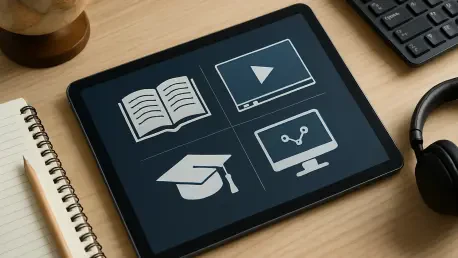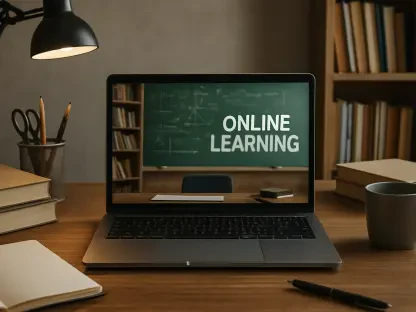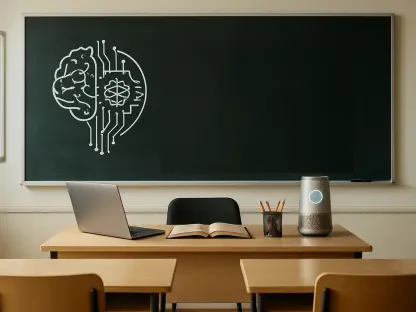Imagine a nation where millions of children lack access to basic education, compounded by a significant digital divide that leaves many teachers unprepared for modern teaching methods. In Nigeria, this challenge has been met with an ambitious and transformative initiative through a partnership between the Universal Basic Education Commission (UBEC) and the Korea International Cooperation Agency (KOICA). This collaborative effort has already impacted over three million children, revolutionizing the educational landscape by integrating technology into basic education. With a focus on innovative teaching practices and inclusive learning environments, the project addresses some of the most pressing issues in Nigeria’s education system, such as the alarming number of out-of-school children and limited digital literacy among educators. By fostering a technology-driven approach, this initiative is paving the way for a brighter future, equipping young learners with the skills needed to thrive in a rapidly evolving world and setting a powerful example of international cooperation in education reform.
Tackling Educational Challenges with Digital Innovation
The scale of Nigeria’s educational challenges is staggering, with over 10 million children out of school and more than 60 percent of public primary school teachers lacking adequate digital literacy. The UBEC-KOICA partnership has taken bold steps to address these issues by introducing digital tools and resources tailored to the needs of both students and educators. A cornerstone of this initiative is Nigeria’s first Smart Education Master Plan, a strategic framework designed to integrate technology into the classroom systematically. Beyond planning, the project has trained over 300 teachers and school leaders, equipping them with the skills to navigate digital platforms effectively. Additionally, six state-of-the-art content development studios have been established, producing nearly 4,000 digital learning resources focused on critical subjects like Mathematics and Science. This comprehensive approach ensures that foundational learning gaps are addressed while preparing students for a future where digital proficiency is essential.
Complementing the digital resources, the initiative has also prioritized access to physical educational materials to support learning across diverse regions. Over 420,000 library materials and 158,000 Nigerian history books have been distributed, enriching the academic environment for countless students. These resources aim to foster a deeper understanding of national heritage alongside core academic subjects, creating a well-rounded educational experience. The impact of such efforts is evident in the way they bridge disparities in access to quality content, particularly in underserved areas. By combining digital innovation with tangible materials, the program addresses immediate educational needs while laying the groundwork for long-term improvements. Stakeholders have noted that this dual approach not only enhances learning outcomes but also inspires confidence among students and parents, reinforcing the belief that education can be a transformative force even in the face of systemic challenges.
Expanding Reach and Building Capacity Across States
While the direct intervention by KOICA initially targeted six of UBEC’s 37 Universal Basic Education Model Smart Schools, the ripple effects of this initiative have extended far beyond these focal points. Over 8,000 learners across 21 states have benefited from the operational smart schools, demonstrating the scalability of the project’s impact. This expansion reflects a shared understanding among educators and policymakers that digital education can serve as a catalyst for systemic change, narrowing the digital divide in regions previously left behind. The success in these states highlights the potential for broader implementation, showing how targeted investments in technology and training can yield widespread benefits. As more schools adopt these innovative practices, the initiative is gradually reshaping the national educational framework to prioritize inclusivity and technological readiness.
Beyond the numbers, the initiative’s focus on capacity building ensures sustainability by empowering local educators and administrators. UBEC’s recent reforms, which have streamlined access to matching grants for states, complement the digital education efforts by enhancing resource allocation after years of bureaucratic hurdles. These reforms enable states to deploy funds more efficiently, supporting the infrastructure needed for smart schools and digital learning. Aisha Garba, UBEC’s Executive Secretary, has emphasized how initial challenges, such as 70 percent of enrolled students lacking foundational skills, were reframed as opportunities to innovate. This forward-thinking mindset has driven the project’s success, ensuring that teachers are not just recipients of technology but active participants in reshaping education. The commitment to building local expertise signals a shift toward self-reliance, positioning Nigeria to sustain these advancements independently in the coming years.
Strengthening Partnerships for a Sustainable Future
The gratitude expressed by Nigerian officials toward KOICA and the South Korean government underscores the value of international collaboration in addressing complex educational challenges. Aisha Garba has highlighted UBEC’s dedication to expanding the initiative, aligning with a vision of creating a smart, inclusive, and globally competitive basic education system. This partnership serves as a model for how shared goals and resources can drive meaningful progress, particularly in developing nations facing similar hurdles. The visible results, as noted by Minister of Budget and Economic Planning Abubakar Bagudu, have boosted confidence among children and parents alike, reinforcing trust in the education system. Such endorsements reflect a consensus on the transformative power of this collaboration, with an emphasis on replicating these successes through localized efforts and sustained investment.
Looking back, the UBEC-KOICA digital education initiative proved to be a pivotal chapter in Nigeria’s journey toward educational reform. It tackled deep-rooted issues with innovative solutions, impacting millions of lives through technology and training. The next steps involve scaling these efforts by leveraging local resources and continuing policy reforms to ensure equitable access. Exploring additional international partnerships could further amplify impact, while integrating feedback from educators and communities would refine the approach. Ultimately, the focus remains on empowering future generations with the tools to navigate a digital world, ensuring that the strides made become a lasting foundation for progress.









